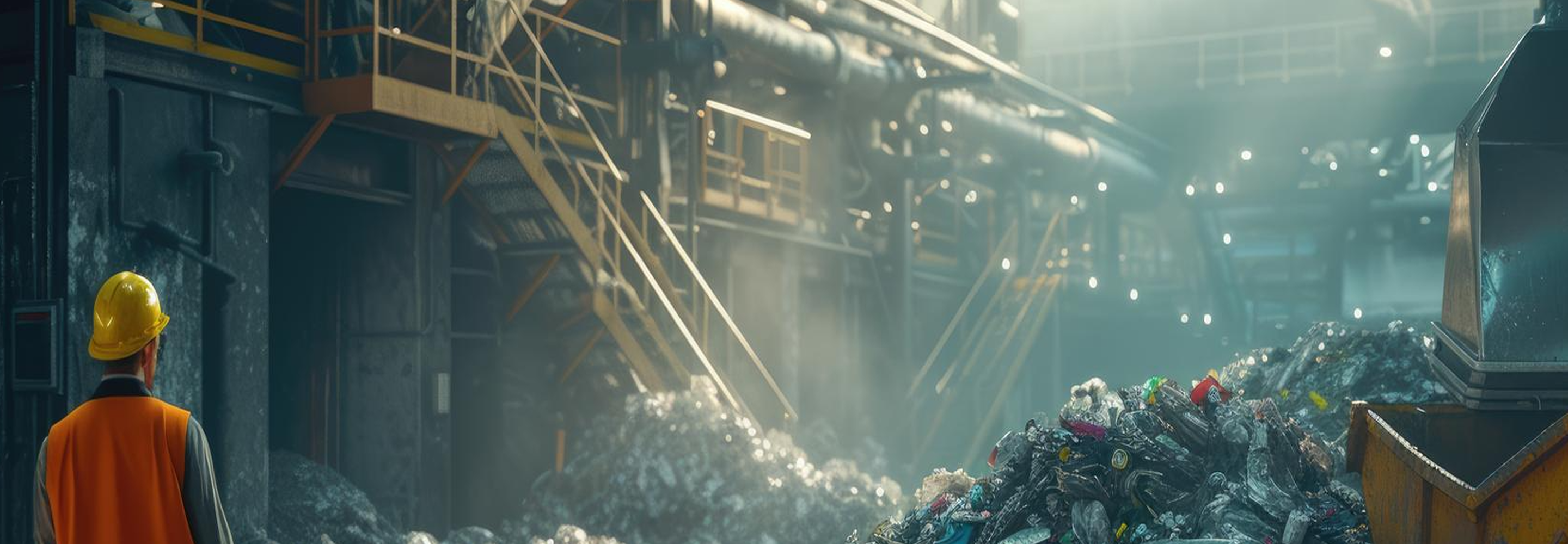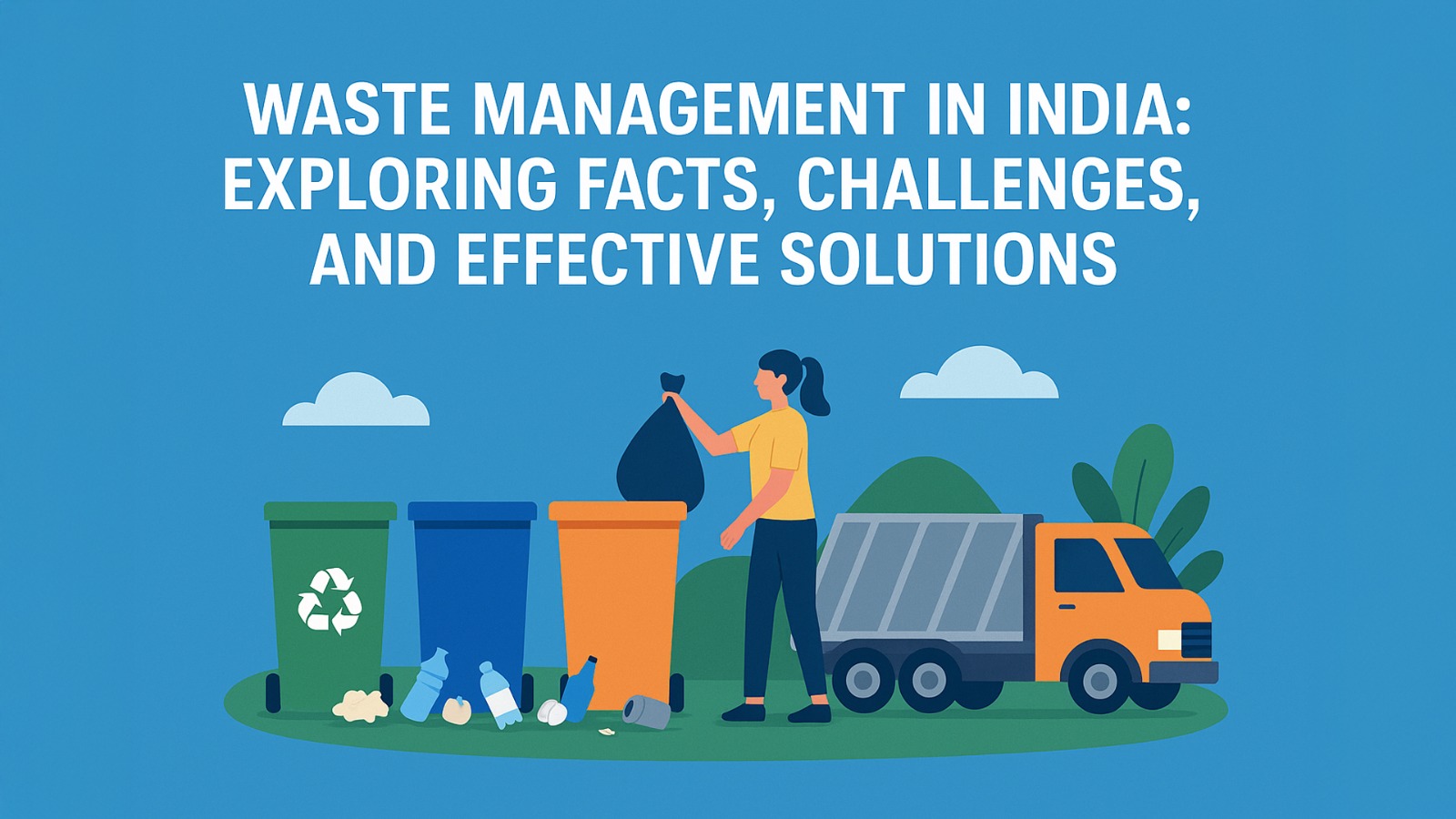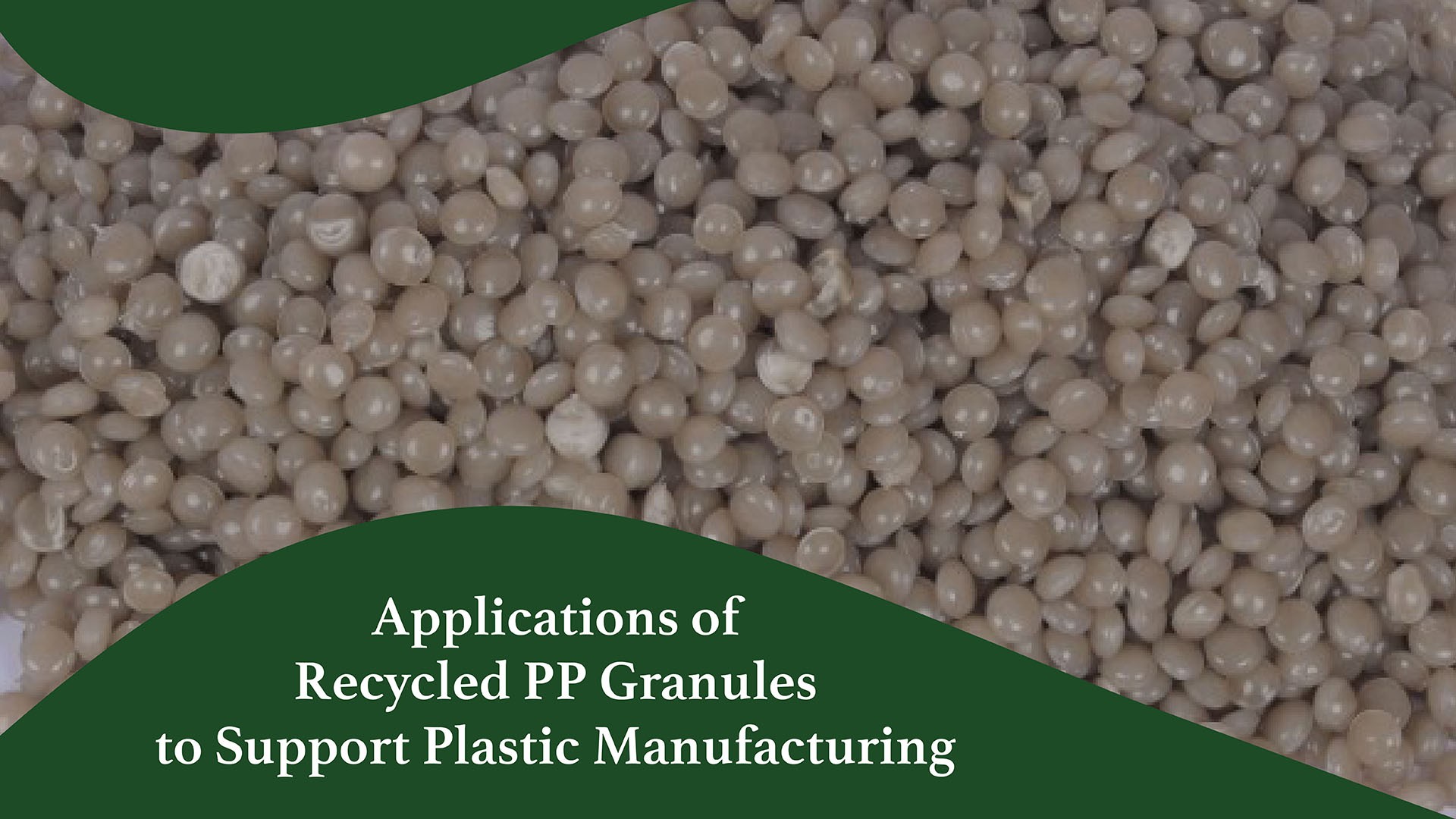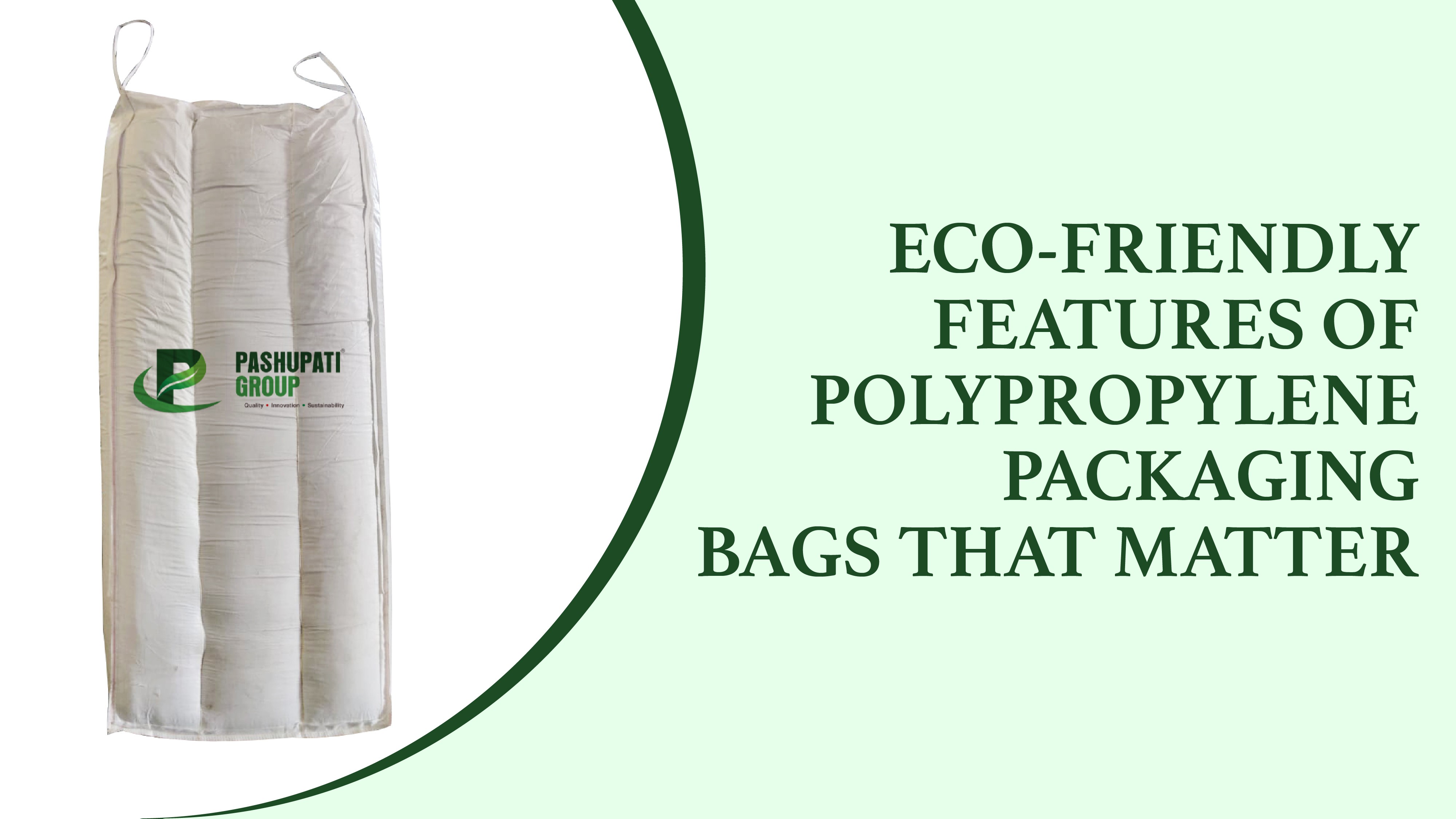
BLOG
POPULAR ARTICLES
Waste Management in India: Exploring Facts, Challenges, and Effective Solutions
12 May, 2025

Each year, waste accumulation across India reaches approximately 62 million tonnes, inclusive of 5.6 million tonnes of plastic waste. Source: trade.gov Population expansion alongside continued urbanisation has intensified demands for comprehensive waste handling infrastructure. Plastic materials serve countless essential functions throughout various industries; however, inadequate handling procedures result in diminished recycling effectiveness and consequent ecological strain. Examination of current circumstances, obstacles, and innovative approaches within Indian plastic waste management sectors reveals significant progress through contributions from waste processing entities like Pashupati Group.
Waste Management Framework: Scope and Implications
The waste management framework throughout India encompasses numerous interconnected elements. Diverse waste streams - municipal refuse, industrial remnants, commercial packaging - merge to create substantial material volumes requiring processing. Infrastructure development varies considerably; metropolitan areas maintain basic collection systems while rural regions face significant service gaps. Central Pollution Control Board assessments indicate collection rates between 60-70% nationwide, with scientific processing or recycling occurring for under 20% of total materials. Source: cpcb.nic.in
Crucially, issues stem not from plastic materials themselves but from systemic deficiencies in waste handling protocols. Properly processed plastic constitutes a remarkably adaptable and economically valuable resource. Current challenges arise from commingled waste streams, insufficient separation practices, and irregular recycling methodology, collectively diminishing resource recovery potential.
Quantitative Assessment of Indian Waste Management
Plastic waste management Current data regarding waste processing across India demonstrates several noteworthy patterns:
- Plastic waste volumes currently surpass 3.5 million tonnes annually with growth rates between 8-10% observed each consecutive year. Source: economictimes.indiatimes.com
- Processing capacity encompasses under 60% of plastic waste materials, with significant portions subjected to downcycling into products of reduced commercial value.
- Composite packaging materials, particularly multi-layer plastic packaging prevalent throughout consumer goods sectors, have substantial quantities of difficult-to-process
materials owing to technical limitations.
Informal collection networks comprising approximately 1.5 million waste collectors provide essential material recovery services without adequate institutional recognition or technical resources.
Companies like Pashupati Group actively address these gaps by integrating collection, processing, and recycling under structured, scalable models that improve the overall waste management ecosystem.
Key Challenges in Plastic Waste Management
Lack of Uniform Material Standards
One significant barrier to efficient recycling involves the absence of standardisation in plastic packaging components. Labels often comprise various polymers incompatible with bottle materials, resulting in mixed-polymer streams that reduce recycled plastic quality and diminish commercial value.
Similarly, bottle caps manufactured from different materials - HDPE and PP - in varying colours create challenges for automated sorting and colour separation processes. The solution requires regulatory authorities to enforce standardised polymers for labelling and caps, which would substantially improve recyclability while reducing sorting costs.
Challenges with Multi-Layer Plastics
Multi-layer plastic packaging, designed for durability and food safety, combines multiple materials, typically polypropylene, aluminium foil, and polyethylene layers. These materials resist separation for recycling with current infrastructure.
Consequently, MLPs typically end up in cement kilns for co-processing or incineration. While this addresses waste disposal, it fails to contribute to circularity within the system. The environmental cost remains significant burning these materials generates emissions, and despite energy recovery, upcycling remains impossible with current technology. Without breakthroughs in chemical recycling or separation technologies, this issue will persist.
Inadequate Waste Segregation
Despite numerous awareness campaigns, source-level segregation of waste remains minimal. Households frequently combine biodegradable and non-biodegradable waste, complicating plastic recovery for waste management companies. The consequences include:
- Contamination from mixed waste
- Labour-intensive and cost-ineffective recycling processes
- Loss or downcycling of valuable plastic into low-grade products
Stricter enforcement measures must compel both households and local authorities to implement more rigorous segregation protocols to address these issues effectively.
Informal Sector and Infrastructure Gaps
While the informal sector handles significant plastic waste collection volumes, it suffers from poor working conditions, limited integration into formal supply chains, and restricted access to advanced recycling machinery. Additionally, smaller municipalities frequently lack essential Material Recovery Facilities (MRFs) or plastic sorting infrastructure for effective waste management.
Effective Solutions to Improve Waste Management
Despite these challenges, several promising solutions have emerged within the sector:
Technological Interventions by Companies like Pashupati Group
Pashupati Group, among India's leading waste management companies, leverages technology to close the loop on plastic usage. With advanced recycling facilities and consistent plastic sourcing mechanisms, their focus encompasses:
- Recycling post-consumer plastic waste into high-quality granules
- Enhancing sorting and washing technologies
- Enabling brands to fulfil Extended Producer Responsibility (EPR) obligations through verified plastic credits
- Ensuring transparent pricing and traceability, critical elements for credibility
This model aligns with sustainable, scalable waste processing by prioritising value recovery rather than mere disposal, demonstrating how technological innovation can transform waste management practices.
Enforcing Material Uniformity Through Regulation
To maximise recyclability, regulatory intervention with strict guidelines on plastic components used in packaging becomes essential. These measures should include:
- Mandating single-polymer labelling and colour standards for caps
- Prohibiting multi-material combinations where feasible alternatives exist
- Incentivising industry shifts toward recyclable materials through subsidies and tax benefits
Such regulations would enable recycling companies to process higher volumes of homogeneous plastic, thereby enhancing quality and operational efficiency throughout the system.
Upgrading Segregation Systems
Local governments and residential communities must invest in improved segregation infrastructure:
- Implementing two-bin or three-bin systems for dry, wet, and recyclable waste
- Developing behavioural change programmes at grassroots levels
- Establishing fines or incentives linked to waste segregation compliance
The cost of inadequate segregation proves excessive in terms of lost recycling opportunities and increased landfill utilisation, making these investments essential for long-term sustainability.
Creating a Stronger EPR Ecosystem
Extended Producer Responsibility (EPR) regulations have improved significantly in recent years, after the amendments in the Plastic Waste Management Rules 2016.
- Brands (producer, importer, brand owner/manufacturer) bear responsibility for plastic introduced into the market per the EPR guidelines.
- Companies must meet recycling targets through collaboration with authorized recyclers like Pashupati Group.
- Recyclers issue EPR credit certificates enabling PIBO & manufacturer compliance.
- Companies include recycled plastic content in their packaging.
A strengthened EPR framework, combined with real-time data tracking and certification, would enhance accountability across the supply chain and drive systematic improvements in waste management practices.
Addressing Multi-Layer Plastic Packaging
While multi-layer plastic serves crucial roles in extending shelf life and ensuring product safety, sustainability considerations necessitate reimagining its composition:
- Research into mono-material alternatives that replicate barrier properties requires prioritisation
- Public-private partnerships should fund research into chemical recycling or de-lamination technologies
- Policies ought to encourage transitions toward recyclable alternatives within the FMCG sector
Pashupati Group: At the Forefront of Waste Management in India
With extensive operations across PAN India, Pashupati Group is a key stakeholder in transforming India's plastic waste landscape. Their comprehensive approach combines:
- Strategic waste sourcing from throughout the country
- State-of-the-art recycling infrastructure
- Transparent and verified documentation processes
- Comprehensive compliance with EPR norms
Pashupati balances ecological priorities with industrial material needs, transforming waste into valuable commodities rather than disposal burdens.
Progress Amid Obstacles
India's waste processing sector shows marked evolution despite persistent challenges: irregular separation practices, multi-layer packaging limitations, and regulatory inconsistencies. Private sector entities like Pashupati Group steadily reshape plastic waste management approaches through practical innovation.
Advancement requires stronger regulations, uniform material standards, better source separation, and targeted technological development. Analysis confirms issues stem from handling deficiencies rather than plastic itself. Strategic partnerships allow plastic to maintain utility while avoiding environmental accumulation.
The journey toward optimal waste practices continues through industry collaboration, technology adoption, and evolving regulations emphasising resource conservation. Companies like Pashupati demonstrate how these principles create measurable progress in sustainable material utilisation.
RECENT BLOGS





